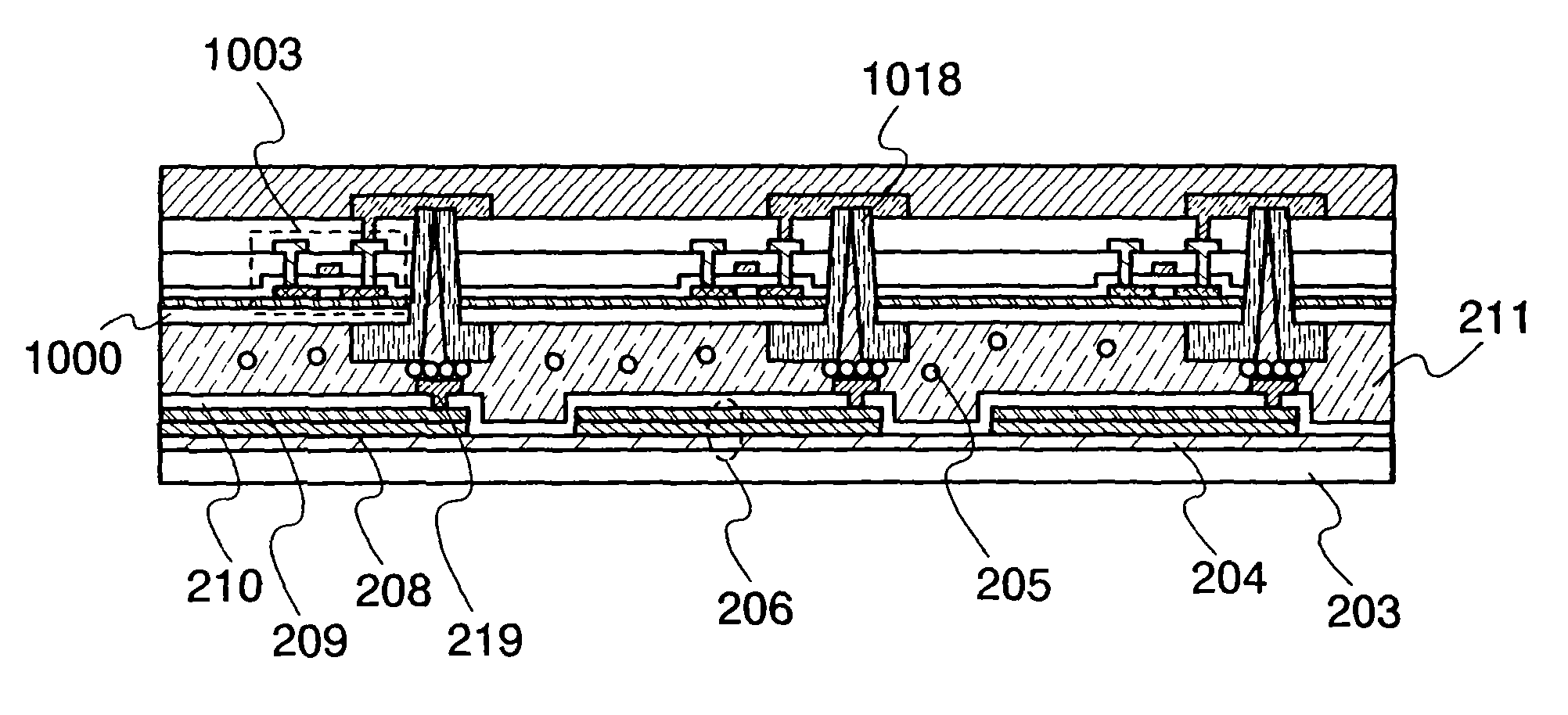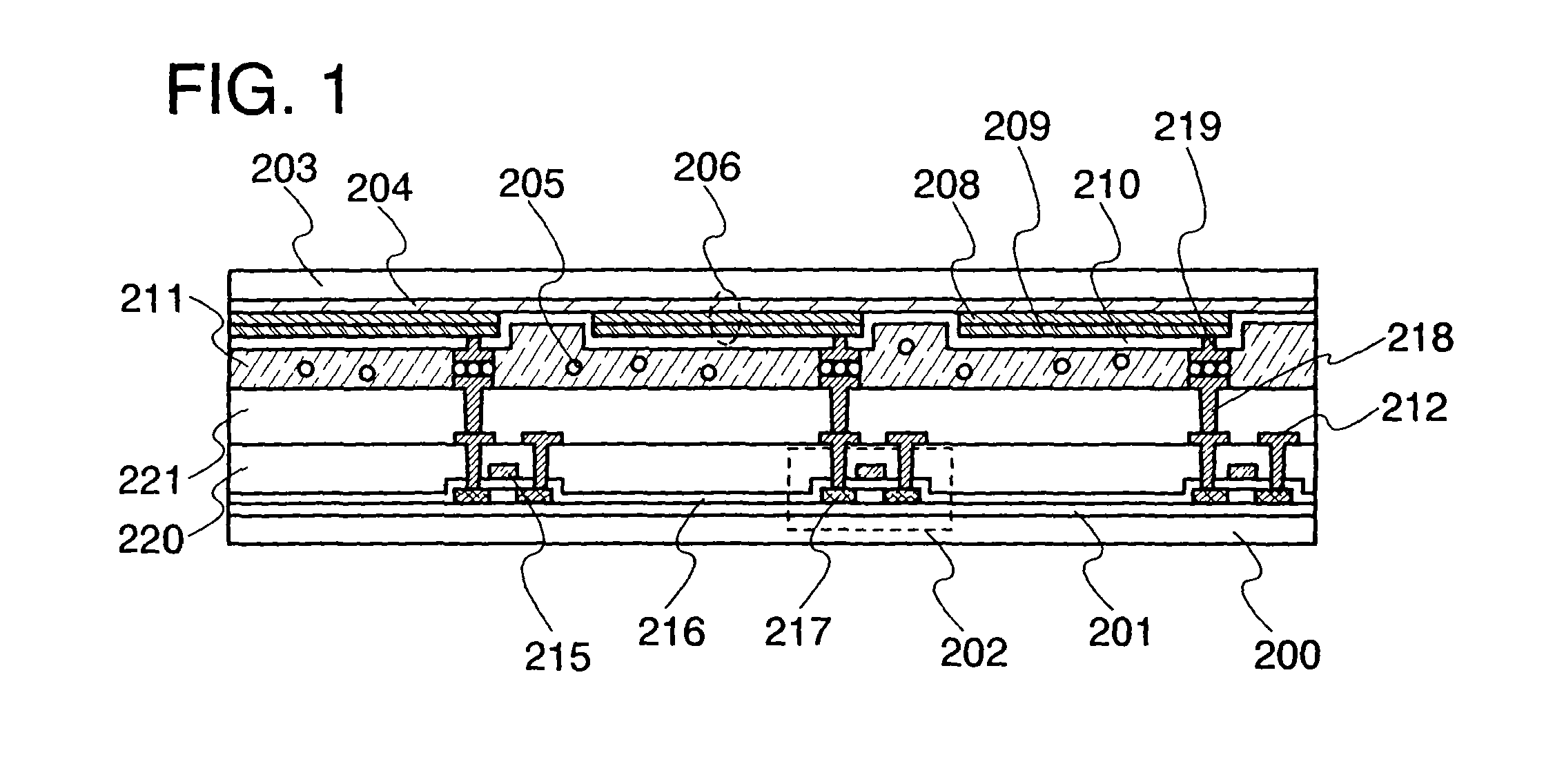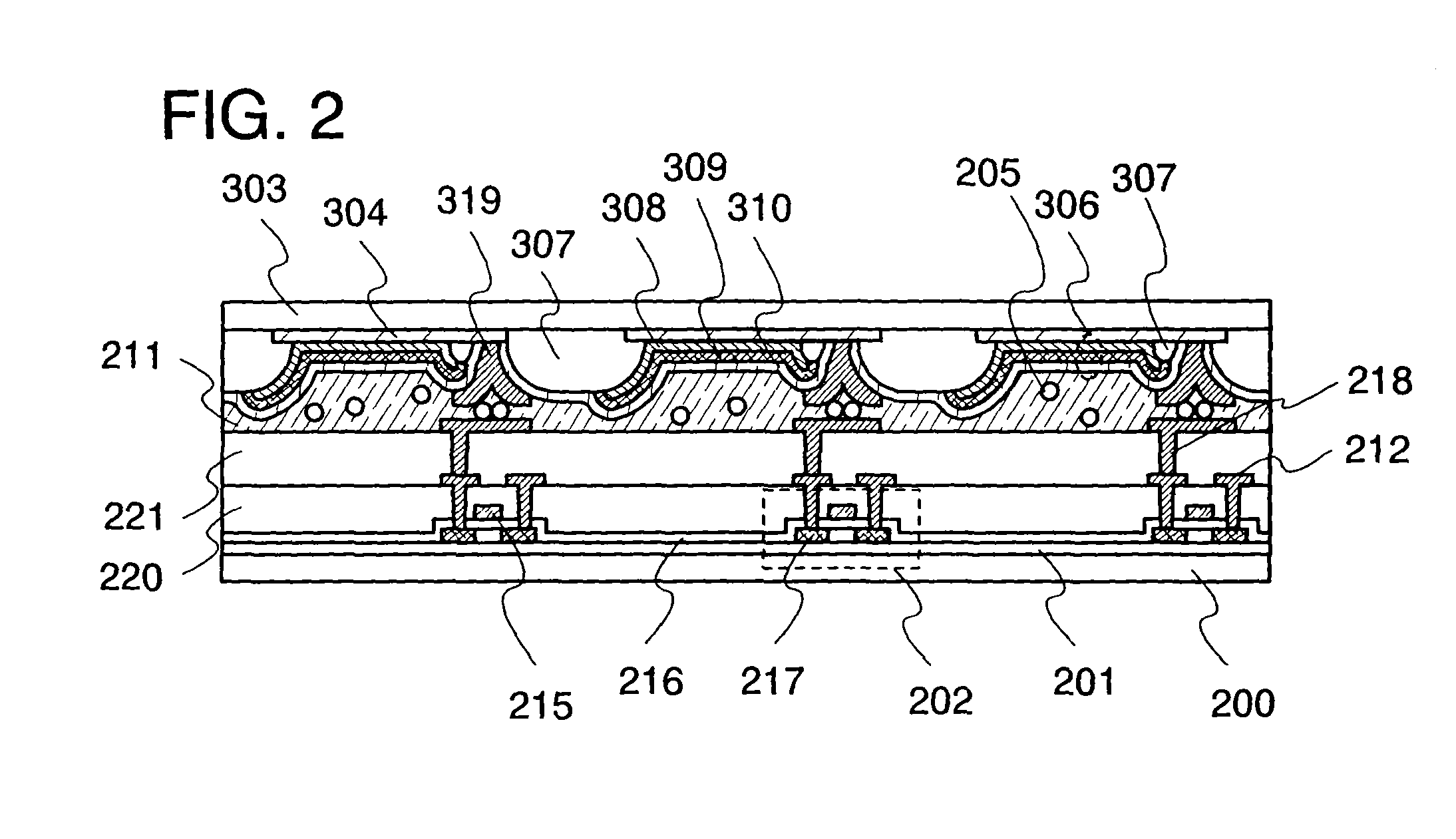Light-emitting device and manufacturing method thereof
a technology of light-emitting devices and manufacturing methods, which is applied in the direction of semiconductor/solid-state device details, electroluminescent light sources, electric lighting sources, etc., can solve the problems of limited area for forming light-emitting elements, point defects, and line defects, so as to improve the yield of forming light-emitting devices, the degree of freedom of each step can be increased, and the process can be flexible changed.
- Summary
- Abstract
- Description
- Claims
- Application Information
AI Technical Summary
Benefits of technology
Problems solved by technology
Method used
Image
Examples
embodiment mode 1
[0060]In this embodiment mode, description is made of the first example of an active matrix light-emitting device where a light-emitting element formed over a first substrate and a transistor formed over a second substrate are electrically connected. That is, description is made of the first example where the light-emitting device with the first structure of the invention is an active matrix light-emitting device.
[0061]FIG. 10 illustrates a schematic view of an active matrix light-emitting device. As shown in FIG. 10, the active matrix light-emitting device includes source signal lines (S1 to Sx), gate signal lines (G1 to Gy), a pixel portion 601, a source signal line driver circuit 602, and a gate signal line driver circuit 603.
[0062]FIG. 11 illustrates an equivalent circuit diagram of the pixel portion 601. In the pixel portion 601, a plurality of pixels 604, which are formed to be surrounded by the source signal lines (S1 to Sx), power supply lines (V1 to Vx), and the gate signal...
embodiment mode 2
[0106]In this embodiment mode, description is made of the second example of an active matrix light-emitting device, where a light-emitting element formed over a first substrate and a transistor formed over a second substrate are electrically connected. That is, description is made of the second example of a case where the light-emitting device with the first structure of the invention is an active matrix light-emitting device.
[0107]The light-emitting device in this embodiment mode has a light-emitting element with a cross-sectional structure which differs from that shown in Embodiment Mode 1. Note that description will be made by using the pixel circuit 609 shown in FIG. 12 as an illustrative configuration of a pixel circuit as in Embodiment Mode 1.
[0108]In the light-emitting device shown in this embodiment mode, the structure of the components over the second substrate is similar to that in Embodiment Mode 1; therefore, description of the second substrate is omitted, and the same c...
embodiment mode 3
[0133]In this embodiment mode, description is made of the third example of an active matrix light-emitting device, where a light-emitting element formed over a first substrate and a transistor formed over a second substrate are electrically connected. That is, description is made of the third example of a case where the light-emitting device with the first structure of the invention is an active matrix light-emitting device.
[0134]The light-emitting device in this embodiment mode has a light-emitting element with a cross-sectional structure which differs from that shown in Embodiment Modes 1 and 2. Note that description will be made by using the pixel circuit 609 shown in FIG. 12 as an illustrative configuration of a pixel circuit as in Embodiment Modes 1 and 2.
[0135]In the light-emitting device shown in this embodiment mode, the structure of the components over the second substrate is similar to that in Embodiment Mode 1; therefore, description of the second substrate is omitted, an...
PUM
 Login to View More
Login to View More Abstract
Description
Claims
Application Information
 Login to View More
Login to View More - R&D
- Intellectual Property
- Life Sciences
- Materials
- Tech Scout
- Unparalleled Data Quality
- Higher Quality Content
- 60% Fewer Hallucinations
Browse by: Latest US Patents, China's latest patents, Technical Efficacy Thesaurus, Application Domain, Technology Topic, Popular Technical Reports.
© 2025 PatSnap. All rights reserved.Legal|Privacy policy|Modern Slavery Act Transparency Statement|Sitemap|About US| Contact US: help@patsnap.com



